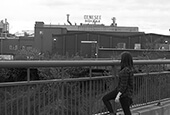Penny Sterling
On a Friday at Boulder Coffee
Interview No. 190
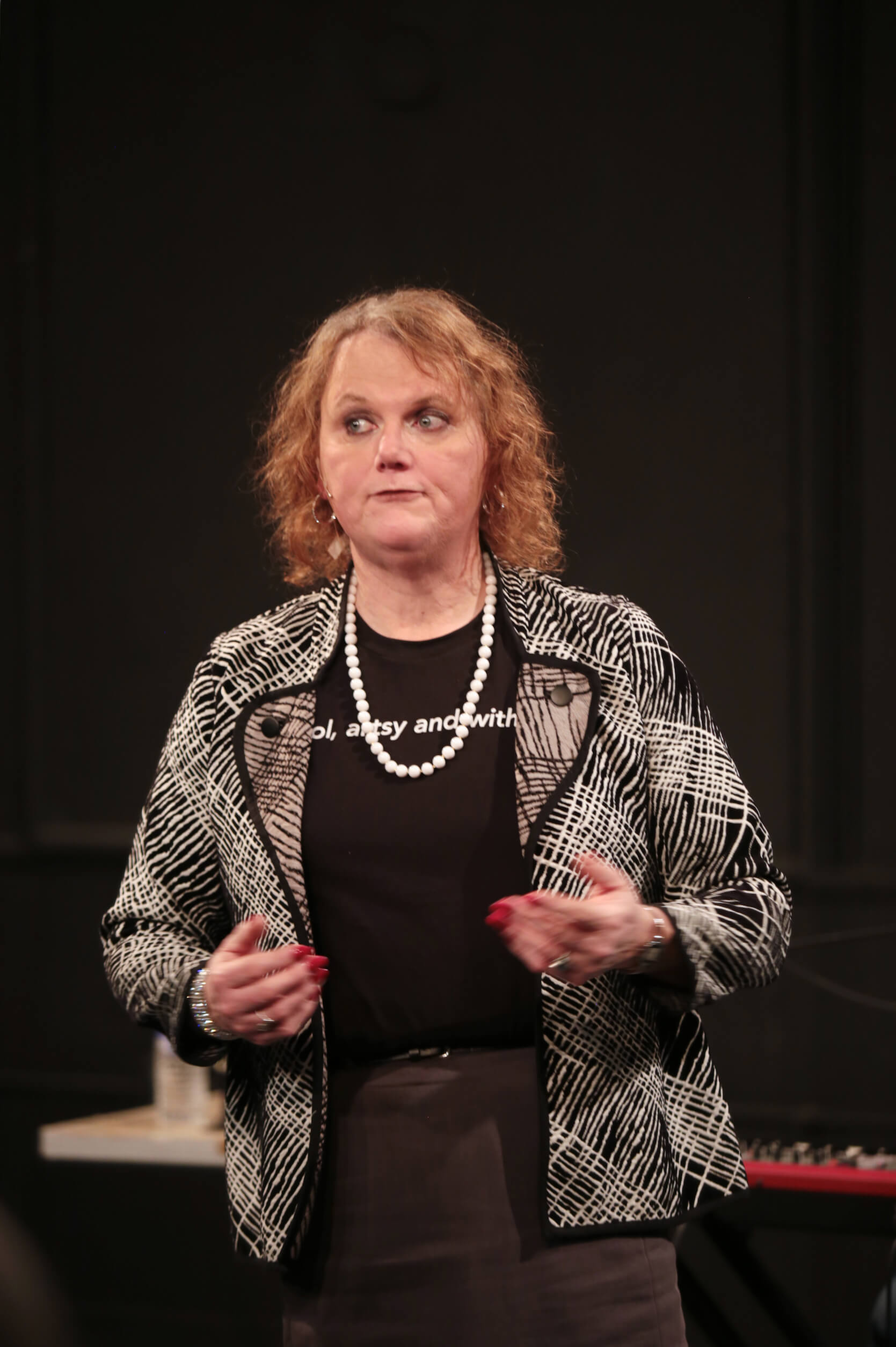

Interview by Emily Hessney Lynch.
Published July 19, 2019.
Where are you from? How did you end up in Rochester?
I’m from Painted Post, NY—the Pittsford of Corning. It’s a company town. My dad worked for R&D in Corning. WXXI brought me to Rochester in 1985 for a video production job.
What was your career path like?
WXXI had been interested in documentaries, but shifted their focus to studio stuff, which got me involved in TV production. I moved to Greater Rochester Cable, which later became Time Warner Cable, which became Spectrum. I worked in Public Affairs, and later went into the cable advertising side of things. After getting laid off, I tried to do independent documentary work. Then I got a job at TWC Sports for awhile, and was nominated for an Emmy… but got laid off. In between that job and the next was when I admitted to myself I was transgender.
May 2014 was when I admitted it, and it took until October 2015 before I fully transitioned. I tried to hide it for my first year at that job. Work was the last place I told. I told them I was androgynous, or gender fluid. It was a relief to hear my therapist ask, “Are you a man or a woman?” and for them to say it was okay when I said “I’m a woman.” I was working in sports with D1 players, and TWC was incredibly supportive. They made the bathrooms gender inclusive—they were single stall bathrooms. I don’t know why people think there’s something magical about where you pee. I remember a long line for the women’s bathroom at Park Ave Fest one year, and when the men’s room opened up, I let a woman in line go in there ahead of me, and she was like “Really?! Are you sure?” It’s just a bathroom.
How did you become a storyteller?
When people asked me questions about my transition, I started sharing those stories on Facebook. People told me I should write a book! I used to do standup comedy. I was voted the funniest man in Rochester in 1993! Though one of those things has changed since then…
Around 2015-2016, I started doing standup again, and I had a routine about being transgender that I was doing. For standup, you need to get a laugh every 15 seconds or so, and I realized I was sacrificing the truth for laughs, so I started writing shows.
I applied to Fringe in March 2016 to do a show I called Spy in the House of Men. I got an offer to do it at MUCCC. It was one hour long, which seemed daunting to write, then I realized I could just do five 10-12 minute bits. I finished writing it 36 hours before the show. My theatre friend directed me, and she reminded me that I can act, move around, and show what I’m telling.
The way I used to hold myself was, “If anyone took a real good look at me, they’d realize I’m not a real man.” I couldn’t act in any roles with emotional subtlety. It took work for me to start to relax my body, to use my arms, face, and hands to express myself and my emotions, and to be okay with crying. Before I transitioned, I was low level angry all the time. I realized how angry I was and how dangerous that was for me. It has a long-term impact. Now my only anger comes out during Twitter wars.
ShMILF Life is the name of my new show that I’ll be performing at Fringe this year. After I transitioned, I set up a dating profile on OkCupid. Most sites and apps don’t have anything for trans people. Relationships are much harder to find than sex. I’d get all kinds of, “Hey, hi, sup” messages. Someone sent me an eggplant emoji and I had no idea what it meant. Someone called me a “shemale” and said they’d always wanted to “make it with one.” I explained that I’m not a “shemale” and that’s more of a porn term. I was an intersection of something for some people—a shemale and a MILF. By naming my next show this, I’m giving it less power. It’s an appropriate use of comedy for me. I try not to do too much self-deprecating humor. I poke fun at rules and behaviors that are established, and try to make people think.
ShMILF Life will be at MUCCC, and I’m doing two shows, one on 9/14 and one on 9/18. I’m also doing a show at Spirit Room on July 20th called Parents and Children, Husbands and Wives.
I was always terrified of 1) admitting I was transgender and 2) wanting to perform. It’s funny that once I did the first one, the second one came naturally. My 4th show I have planned is called Children are Designed to be Raised by Idiots.
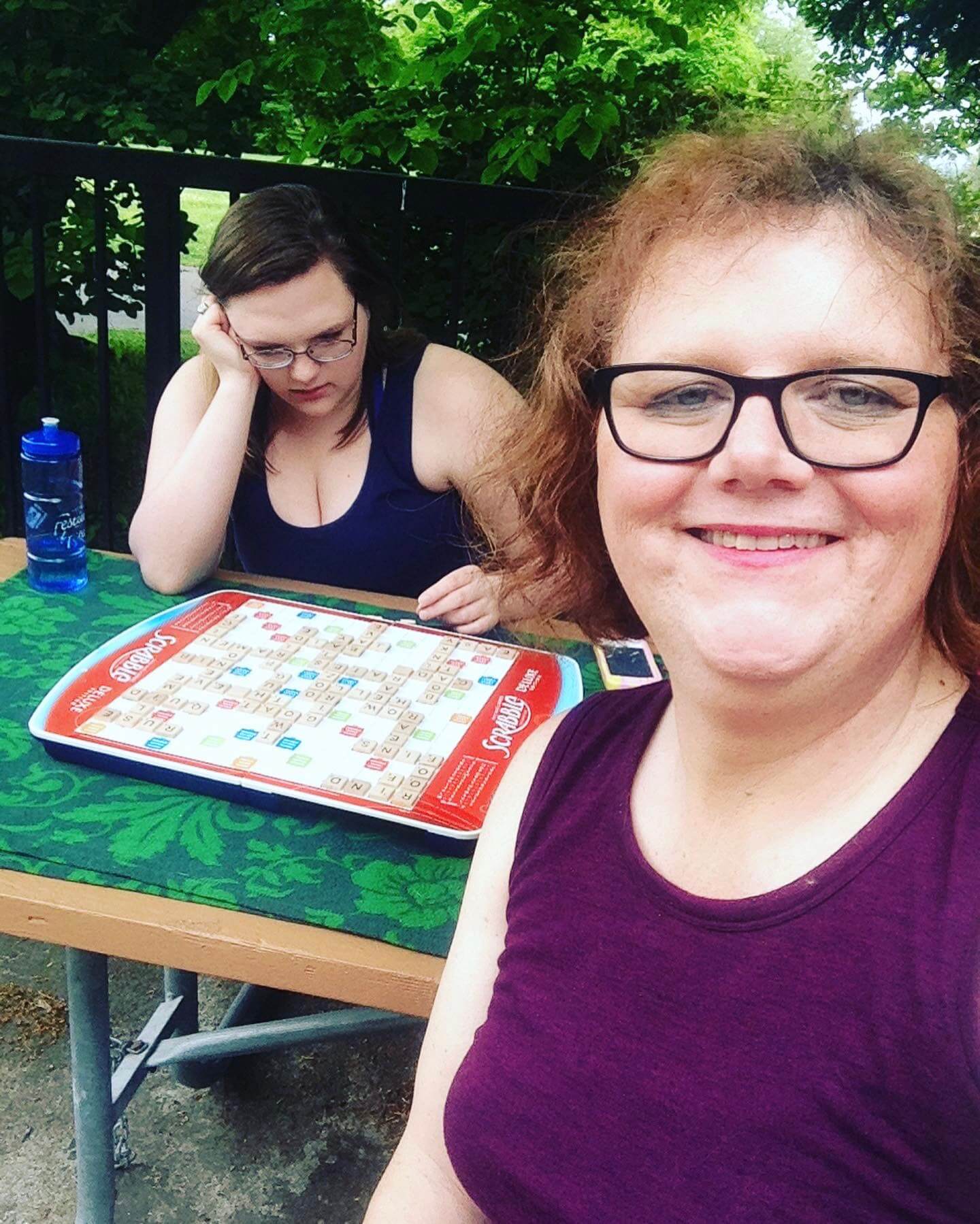

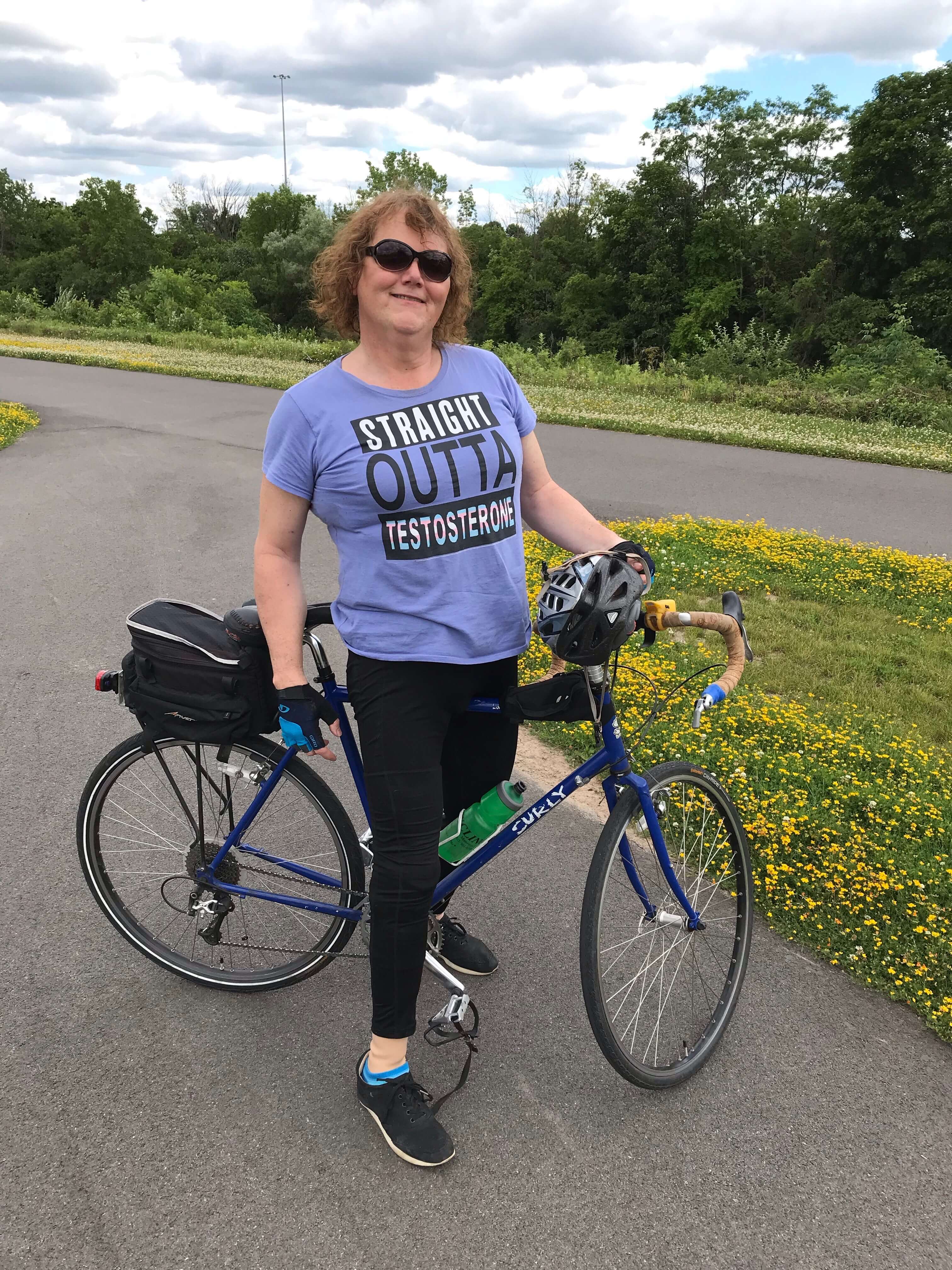

What are some of your favorite hidden gems around Rochester?
- I love the canal trail, from Scottsville to Fairport; I bike it all the time.
- The South Wedge Diner. Visually, it’s nothing, but you always get lots of food, it’s always good, and they have a wide variety. They have really good Chinese food!
- The amount of comedy and places to see it is great, and some of it is more pop-up shop style. The Hideaway and Pillar Church are two spots doing that. You can see some really good comedians. It’s intersectional, too—people are adamant that you should talk about yourself and not attack others. It’s a safe space for women. There’s an all-women show called “The Handmaid’s Reckoning.” Another good show at the Hideaway is “Hidden Talents,” where people have to perform a hidden talent other than their standup. I’ve gone and played trumpet, which I hadn’t done since high school.
- Boulder Coffee on Alexander — was one of the first places I felt welcomed when I transitioned, and I spend a fair amount of time there writing.
- Wallbyrd Theatre at the Avyarium has fantastic performers of challenging shows, doing exceptional work.
We have a thriving community of open and accepted people. The level of acceptance leads to our flourishing creativity.
How would you describe the LGBTQ+ community in Rochester?
It’s thriving, but there’s tension and friction too. I’ve always been uncomfortable with the white maleness of Pride.
I’ve been raising kids since the first Bush administration. There are patterns with children, and at risk children rarely fight amongst themselves. The friction in the LGBTQ+ community signifies that LGBTQ+ people have gained enough acceptance that they can start to challenge each other, listen, and allow for growth, and still be part of the community. There has to be friction. What I need in support is different from a white gay man is different from a black trans woman. We have to have the flexibility to accommodate needs. We are all people. Being queer doesn’t mean you can’t hurt other queer people.
I gave a sermon at a church I’ve attended that aims to be inclusive. Twice a year they swap with a Black church, but when we do that, I don’t feel I’m welcome there. I experience intense feelings of shame. An older Black woman there once blocked me from entering the bathroom and challenged me to push past her. I didn’t. Black queer people have it much harder than white queer people do. And that’s not my story to tell, but I can acknowledge it and point it out. It’s my job to be an ally.
If you had $100 and two hours to kill, how would you spend the time/money in Rochester?
I’d take some friends to Comedy at the Carlson; or I’d go bowling at Radio Social; or I’d go thrift shopping with one of my trans girlfriends; Goodwill on Clinton is great for that; or go to Hedonist for ice cream. Actually, I’d probably try to see where I can take the most friends as cheaply as possible. That’s probably The Cinema—they’ve got great popcorn, and cats!
What's the best place to get a garbage plate?
I make a fantastic garbage plate. Stuart’s has a fantastic garbage plate mix, I just add tomato paste to it, which they don’t tell you to do. I have 4 kids, and I can always get them to come home if I make garbage plates and let them do laundry at my place. I also love Dogtown; I always get a split plate. I go there once a month maybe.
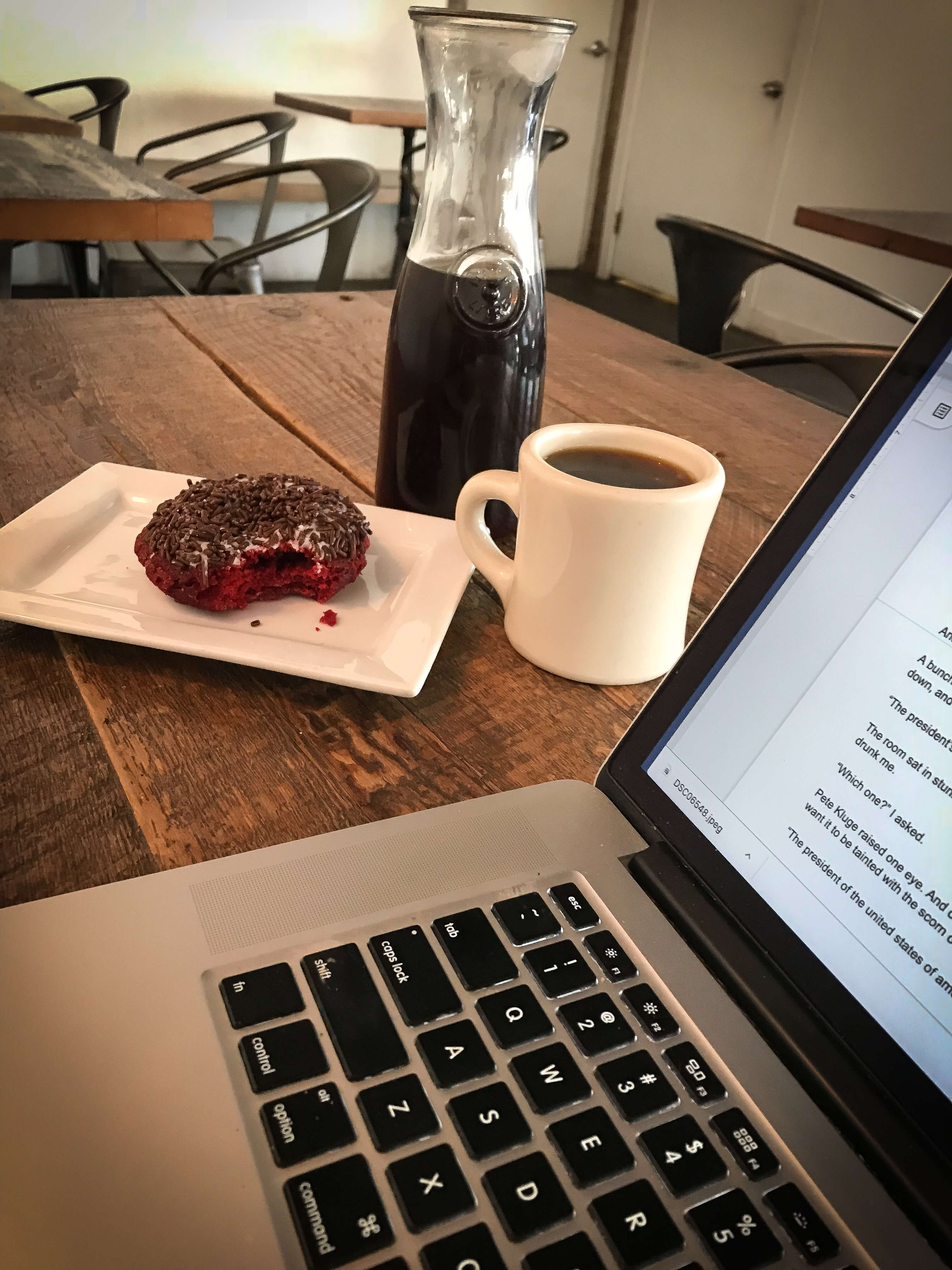

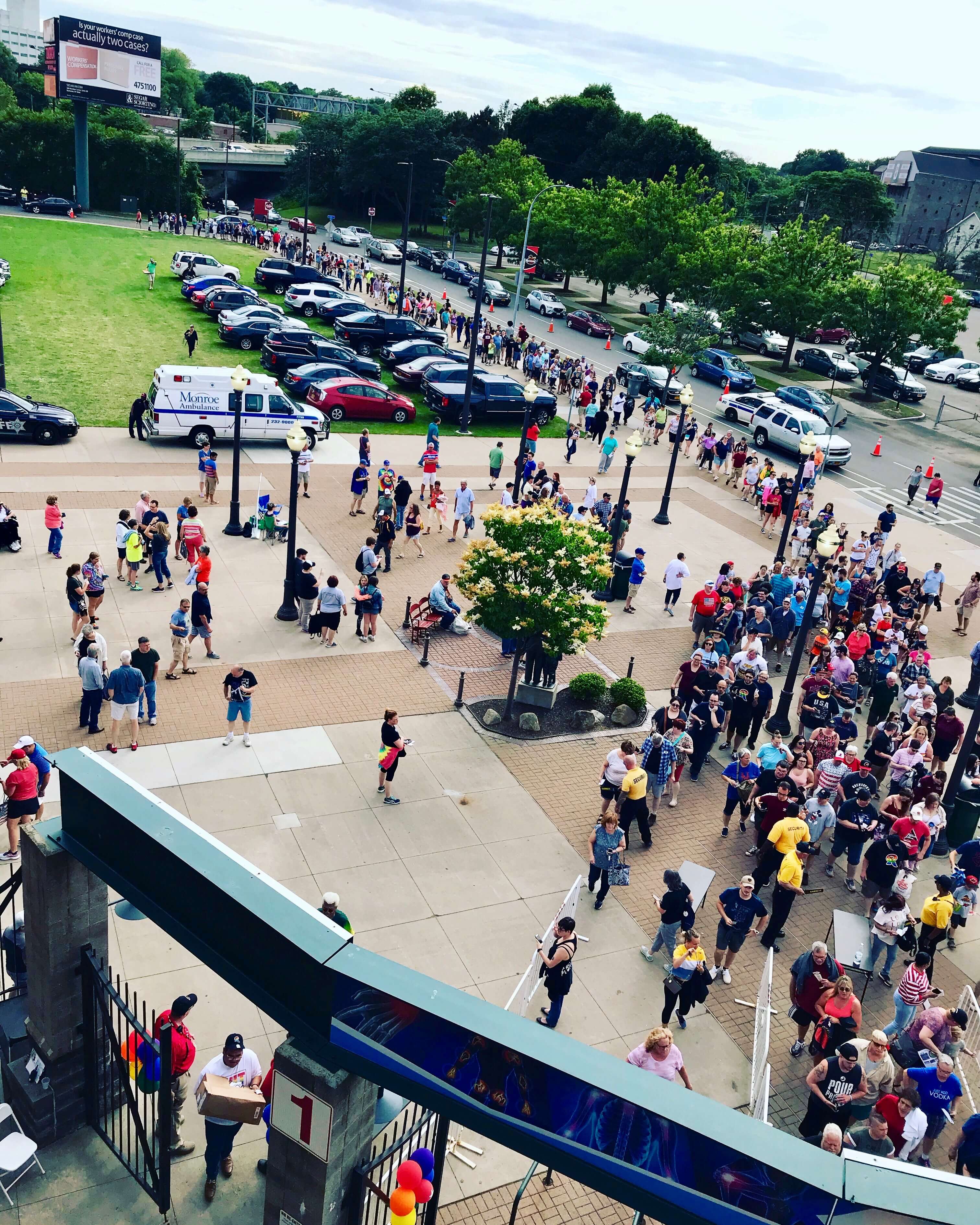

What are some of your personal coping mechanisms for cold/gray weather?
Denial! Or sledding with my kids. I have a hardy bike, with wide tires, and that gets me outside. The cold doesn’t bother me that much. I have cute winter outfits, and I like snow and shoveling. Shoveling is very empirical; you can see what you’ve done and what’s left to do. I like to practice driving in snow in an empty parking lot. It’s fun to watch snow pillows fall off cars. It’s beautiful. There’s beauty in everything. That may be why I’ve stayed in Rochester. I like the way winter smells, it’s like Christmas. There’s a crispness and a cleanness to the air.
What makes Rochester unique?
The overall level of education is pretty unique, and so is the cheapness of our city. Very few places have the incredibly low cost of living that we have. We also have a large number of opportunities to enrich your life, in terms of the local art scene and opportunities to enjoy art and beauty. It’s comparable to cities like Minnesota, D.C., or Cincinnati. We have a very concentrated level of open, expressive people making an impact on the community. All the webisodes, podcasts, and more coming out of our city are incredibly interesting and evocative. You don’t see that in other towns this size—it’s fantastic!
Plus, within 500 steps of where I live in the Wedge, I can get to: a Japanese restaurant, a noodle place, an Ethiopian restaurant, diners, an Indian restaurant, and Indian grocer, a movie theatre, a pizza place, and so much more. We’re a melting pot.
What do you think could be improved?
We really, truly need to decrease the amount of racism in the area. I am very aware that my perception of Rochester is vastly different from many in the suburbs, who seem to think that Rochester is a hotbed of crime and that a visit downtown after dark will result in some sort of assault on them. The incredibly successful white flight over the past 30 years is reflected in the city in so many ways, but especially in education. In our metropolitan area we have three high schools that are listed in the top 0.2% of schools in America, but the Rochester City School district is one of the worst districts, with many failing schools, and even the successful ones face funding issues. The disparity is divided starkly along racial lines. Yes, the RCSD needs to stop being a political football between 30 Church Street and 131 W. Broad Street, but this fight is the knife's edge of the larger issue of racially-based income disparity brought on by segregation.
Penny Sterling is a storyteller, father, and trans woman who puts on fantastic plays in Rochester and beyond. Catch her at the Spirit Room on 7/20/19 and Rochester Fringe in September 2019. For more of her perspective, visit our Instagram.

